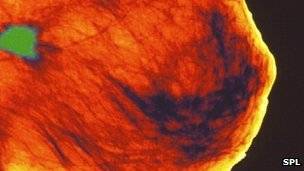by War News Updates Editor @ War News Updates: Is There A Link Between Higher Breast Cancer Rates And Serving In The Military?

Photo: Warrior: 'The dog tags and camouflage are real. I am still active duty,' said Barbie, as she posed for the Scar Project to raise awareness about breast cancer
Mystery Of Soaring Breast Cancer Rates Among Women AND Men In U.S. Armed Forces... But Government STILL Won't Cover Treatment -- Daily Mail
A startling percentage of servicemembers have been diagnosed with breast cancer and experts have not been able to determine why.
Historically, rates of cancer among military members have been relatively low compared to the rest of the population, especially for diseases like lung, cervical and colorectal cancers.
But for some reason, more and more men and women in the armed forces have been diagnosed with breast cancer at young ages, as female soldiers are 20 to 40 per cent more likely to get the disease.
Read more .... Mystery of soaring breast cancer rates among women AND men in U.S. armed forces... but government STILL won't cover treatment | Mail Online
Update: Alarming breast cancer rates among troops -- Army Times
My Comment: Not everyone is in agreement that there is a link between higher breast cancer rates and serving in the military.


Photo: Warrior: 'The dog tags and camouflage are real. I am still active duty,' said Barbie, as she posed for the Scar Project to raise awareness about breast cancer
Mystery Of Soaring Breast Cancer Rates Among Women AND Men In U.S. Armed Forces... But Government STILL Won't Cover Treatment -- Daily Mail
A startling percentage of servicemembers have been diagnosed with breast cancer and experts have not been able to determine why.
Historically, rates of cancer among military members have been relatively low compared to the rest of the population, especially for diseases like lung, cervical and colorectal cancers.
But for some reason, more and more men and women in the armed forces have been diagnosed with breast cancer at young ages, as female soldiers are 20 to 40 per cent more likely to get the disease.
Read more .... Mystery of soaring breast cancer rates among women AND men in U.S. armed forces... but government STILL won't cover treatment | Mail Online
Update: Alarming breast cancer rates among troops -- Army Times
My Comment: Not everyone is in agreement that there is a link between higher breast cancer rates and serving in the military.




